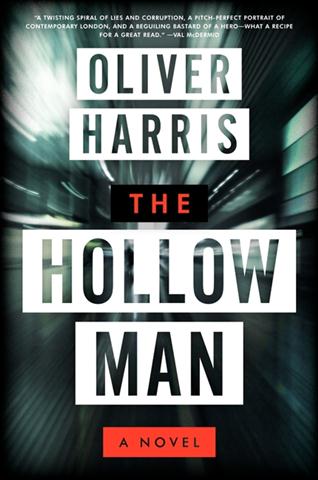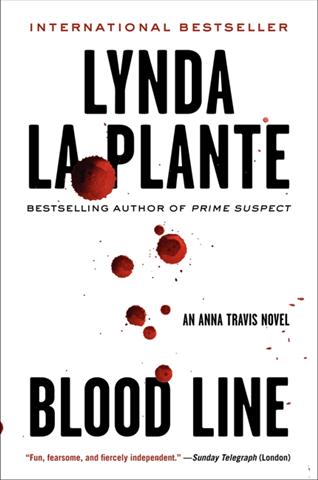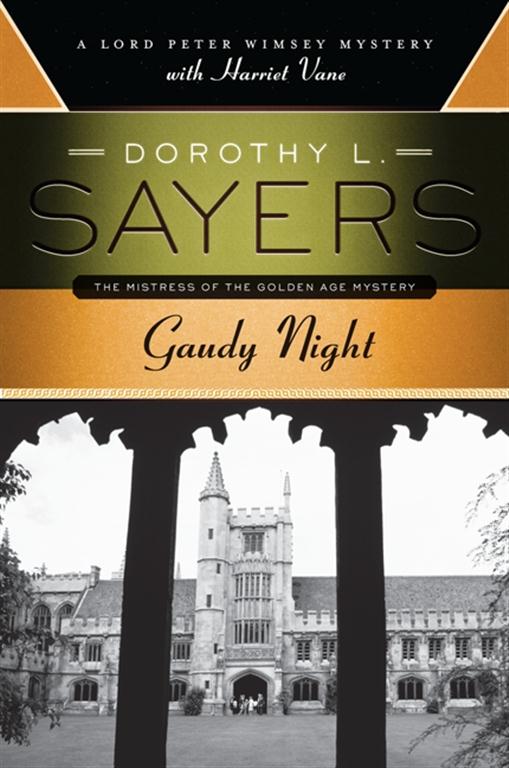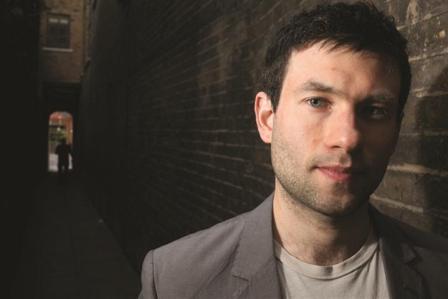The inaugural list of Bourbon Street Books, the new mystery and thriller line from Harper paperbacks, an imprint of HarperCollins, provides ample evidence of the line's range: the books include originals, reprints, reissued backlist and classics. Headlining the fall 2012 season are two paperback originals: Blood Line, international bestselling author Lynda La Plante's latest book featuring detective Anna Travis, and The Hollow Man, a debut novel by Oliver Harris (both October).
 The first in a series, The Hollow Man is a gritty, London-set thriller introducing detective Nick Belsey. "It's by no means a cozy," said Claire Wachtel, senior v-p and executive editor. "This is a guy who drinks and sometimes walks on both sides of the law." After reading a portion of The Hollow Man, she set it aside to focus on other tasks but kept thinking about the story, she said. "It's simply amazing. You really come to root for Belsey, and the plot is nothing you would ever see coming." Cal Morgan, editorial director of trade paper originals for Harper Perennial and Harper paperbacks, agreed, predicting that Harris "is going to be an absolute star." (See below for more on Harris.)
The first in a series, The Hollow Man is a gritty, London-set thriller introducing detective Nick Belsey. "It's by no means a cozy," said Claire Wachtel, senior v-p and executive editor. "This is a guy who drinks and sometimes walks on both sides of the law." After reading a portion of The Hollow Man, she set it aside to focus on other tasks but kept thinking about the story, she said. "It's simply amazing. You really come to root for Belsey, and the plot is nothing you would ever see coming." Cal Morgan, editorial director of trade paper originals for Harper Perennial and Harper paperbacks, agreed, predicting that Harris "is going to be an absolute star." (See below for more on Harris.)
 A gripping plotline is imperative in any suspenseful story Wachtel signs up and so is top-notch writing. Like Harris, Edgar Award-winner La Plante delivers on both counts, she said. "The name Lynda La Plante resonates with mystery and thriller readers in a strong way." Along with the Anna Travis page-turners, the author's oeuvre includes the Prime Suspect television show and novels, several of which Harper Paperbacks re-launched earlier this year. (See below for more on La Plante.)
A gripping plotline is imperative in any suspenseful story Wachtel signs up and so is top-notch writing. Like Harris, Edgar Award-winner La Plante delivers on both counts, she said. "The name Lynda La Plante resonates with mystery and thriller readers in a strong way." Along with the Anna Travis page-turners, the author's oeuvre includes the Prime Suspect television show and novels, several of which Harper Paperbacks re-launched earlier this year. (See below for more on La Plante.)
 Bourbon Street Books is bringing back into print four titles by classic British mystery author Dorothy L. Sayers. The capers, which feature Lord Peter Wimsey and his love interest, Harriet Vane, are Strong Poison, Have His Carcase, Busman's Honeymoon and Gaudy Night (October). Rounding out the fall list is Nick Drake's Egypt: The Book of Chaos (December), the final volume in a trilogy that weaves together mystery, history, religion, politics and court intrigue in ancient times.
Bourbon Street Books is bringing back into print four titles by classic British mystery author Dorothy L. Sayers. The capers, which feature Lord Peter Wimsey and his love interest, Harriet Vane, are Strong Poison, Have His Carcase, Busman's Honeymoon and Gaudy Night (October). Rounding out the fall list is Nick Drake's Egypt: The Book of Chaos (December), the final volume in a trilogy that weaves together mystery, history, religion, politics and court intrigue in ancient times.
Along with publishing new books by both established and undiscovered writers, reintroducing classics and backlist titles under the Bourbon Street banner is a way to recognize HarperCollins's long, successful history in the genre. Its mystery beginnings harken back to 1868 when Harper & Brothers published Wilkie Collins's The Moonstone, widely considered the first detective novel ever.
In the same way that many great mysteries, whether set in the Big Easy, London, the far East or elsewhere, convey a memorable sense of place, Morgan and other staffers wanted to be sure the moniker for the new line did the same. Bourbon Street was inspired, of course, by the famed French Quarter thoroughfare, a vibrant, edgy, brash landmark in a city teeming with history, literary significance and a sense of intrigue. "I don't think there's a place in the country that has more atmosphere than Bourbon Street in New Orleans," said Morgan. "It's a wonderful cloak to wrap this line in."
That cloak will help bring a greater level of awareness to all Bourbon Street's offerings by presenting them "in a context," said Morgan. "Members of the mystery and thriller community will begin to know what our tastes are and look to us as a source of great writers."








 The first in a series, The Hollow Man is a gritty, London-set thriller introducing detective Nick Belsey. "It's by no means a cozy," said Claire Wachtel, senior v-p and executive editor. "This is a guy who drinks and sometimes walks on both sides of the law." After reading a portion of The Hollow Man, she set it aside to focus on other tasks but kept thinking about the story, she said. "It's simply amazing. You really come to root for Belsey, and the plot is nothing you would ever see coming." Cal Morgan, editorial director of trade paper originals for Harper Perennial and Harper paperbacks, agreed, predicting that Harris "is going to be an absolute star." (See below for more on Harris.)
The first in a series, The Hollow Man is a gritty, London-set thriller introducing detective Nick Belsey. "It's by no means a cozy," said Claire Wachtel, senior v-p and executive editor. "This is a guy who drinks and sometimes walks on both sides of the law." After reading a portion of The Hollow Man, she set it aside to focus on other tasks but kept thinking about the story, she said. "It's simply amazing. You really come to root for Belsey, and the plot is nothing you would ever see coming." Cal Morgan, editorial director of trade paper originals for Harper Perennial and Harper paperbacks, agreed, predicting that Harris "is going to be an absolute star." (See below for more on Harris.) A gripping plotline is imperative in any suspenseful story Wachtel signs up and so is top-notch writing. Like Harris, Edgar Award-winner La Plante delivers on both counts, she said. "The name Lynda La Plante resonates with mystery and thriller readers in a strong way." Along with the Anna Travis page-turners, the author's oeuvre includes the Prime Suspect television show and novels, several of which Harper Paperbacks re-launched earlier this year. (See below for more on La Plante.)
A gripping plotline is imperative in any suspenseful story Wachtel signs up and so is top-notch writing. Like Harris, Edgar Award-winner La Plante delivers on both counts, she said. "The name Lynda La Plante resonates with mystery and thriller readers in a strong way." Along with the Anna Travis page-turners, the author's oeuvre includes the Prime Suspect television show and novels, several of which Harper Paperbacks re-launched earlier this year. (See below for more on La Plante.) Bourbon Street Books is bringing back into print four titles by classic British mystery author Dorothy L. Sayers. The capers, which feature Lord Peter Wimsey and his love interest, Harriet Vane, are Strong Poison, Have His Carcase, Busman's Honeymoon and Gaudy Night (October). Rounding out the fall list is Nick Drake's Egypt: The Book of Chaos (December), the final volume in a trilogy that weaves together mystery, history, religion, politics and court intrigue in ancient times.
Bourbon Street Books is bringing back into print four titles by classic British mystery author Dorothy L. Sayers. The capers, which feature Lord Peter Wimsey and his love interest, Harriet Vane, are Strong Poison, Have His Carcase, Busman's Honeymoon and Gaudy Night (October). Rounding out the fall list is Nick Drake's Egypt: The Book of Chaos (December), the final volume in a trilogy that weaves together mystery, history, religion, politics and court intrigue in ancient times.
 Since penning her first television screenplay, a crime drama for British television in the 1980s,
Since penning her first television screenplay, a crime drama for British television in the 1980s,  A "beguiling bastard of a hero" (Val McDermid) and "London's coolest cop" (The Daily Mail), Nick Belsey makes a memorable first impression in The Hollow Man (October),
A "beguiling bastard of a hero" (Val McDermid) and "London's coolest cop" (The Daily Mail), Nick Belsey makes a memorable first impression in The Hollow Man (October),